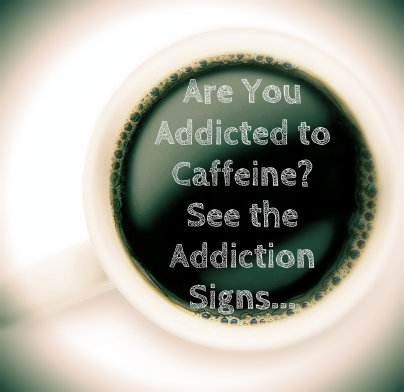Indicators on Is Caffeine (or Coffee) Addiction Real? The Science in 2019 You Need To Know

/arc-anglerfish-tgam-prod-tgam.s3.amazonaws.com/public/KY4BBP2HKFHUDMAD5C2BRNQSDQ)
How to Break Your Caffeine Addiction for Good
The Main Principles Of How to Detox from Caffeine, Sugar, and White Flour in 7 Days
This mix of drugs threatens enough that the United States FDA considers alcoholic energy beverages hazardous and bans their sale. While This Website can be acquired in some other nations, their consumption is ill-advised, as is mixing energy drinks and alcohol. The drugs are harmful mainly since stimulants counter numerous, although not all, of the obvious signs one has drunk too much alcohol (a depressant).
The effect of taking a stimulant with a depressant produces a "push-pull" effect on the body, not unlike a speedball. While caffeine is admittedly a mild stimulant, it can be extremely harmful if a person consumes excessive alcohol as the stimulant effects diminish. There is a much higher danger that they will mistakenly experience alcohol poisoning, perhaps overdosing on alcohol and having their breathing dangerously slowed or even stopped.
Facts About Caffeine Use Disorder: A Comprehensive Review and Uncovered
What is caffeine? Caffeine is the stimulant in your coffee, tea, chocolate and soda that reduces fatigue, increases awareness and offers you a boost of energy. It can likewise cause insomnia, headaches, dehydration and high blood pressure, if you're not careful. For many, caffeine is a tool to assist them get up, liven up and concentrate.

An Unexpected Threat to Addiction Recovery: Caffeine
Caffeine is a white, bitter compound that's found naturally in over 60 plants, including coffee beans, tea leaves and cacao pods that are utilized to make chocolate. The U.S. Fda (FDA) thinks about caffeine to be both a food additive and a drug. The quantity of caffeine in your food and beverage varies.

How to Kick Your Addiction to Caffeine to the Curb - Haddon Towne Center
Not known Details About Caffeine Addiction: How I Broke From It - A Foodie Stays Fit
Coffee can have just two milligrams of caffeine (decaf coffee) per cup, and as much as 200 milligrams per cup. Your normal tea has about 40 milligrams of caffeine, but it can range from nine to 110 milligrams. Twelve ounces of soda pop/soft drink typically has 30 to 60 milligrams of caffeine.

What impact does caffeine have on the body? Caffeine enters your blood stream from your stomach and little intestine. As soon as in your bloodstream, caffeine promotes your central nerve system your nerves, brain and back cable to make you feel more awake and alert. Caffeine lowers tiredness and improves focus and concentration.
